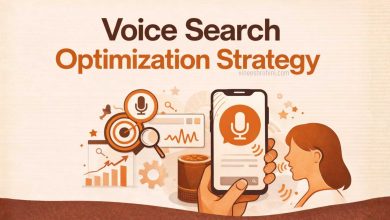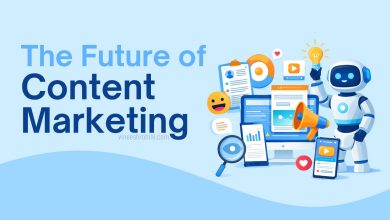Why Digital Marketing? Types, Skills, and Careers
Introduction
In today’s fast-paced world, businesses are under constant pressure to stay ahead of the competition. With the advent of digital technology, traditional marketing methods have become less effective, and companies are turning to digital marketing to reach their target audience. Digital marketing offers a range of benefits, including cost-effectiveness, measurable results, and global reach. In this essay, we will explore why digital marketing is essential, the different types of digital marketing, the skills required to succeed in the field, and the various career opportunities available.
Why Digital Marketing is Essential
Traditional marketing methods, such as print media and television ads, have become less effective in today’s digital age. With the majority of people spending a significant amount of their time online, businesses must have a strong online presence to reach their target audience. Digital marketing offers a range of benefits that make it essential for businesses to include in their marketing strategy.
Cost-Effective
One of the most significant advantages of digital marketing is its cost-effectiveness. Traditional marketing methods, such as television ads and billboards, can be expensive, and it can be challenging to track their effectiveness. In contrast, digital marketing is much more cost-effective, with a variety of affordable channels available. Social media platforms, email marketing, and search engine optimization are all examples of digital marketing channels that are more affordable than traditional marketing methods.
Measurable Results
Digital marketing provides businesses with the ability to track and measure the effectiveness of their marketing campaigns. With tools such as Google Analytics, businesses can track the number of website visitors, the amount of time they spend on the site, and the actions they take. This allows companies to measure the return on investment (ROI) of their marketing campaigns and make data-driven decisions.
Global Reach
Digital marketing provides businesses with the ability to reach a global audience. With the majority of people spending a significant amount of their time online, businesses can target customers anywhere in the world. Social media platforms, in particular, offer businesses the ability to reach a global audience with targeted advertising.
Different Types of Digital Marketing
There are several different types of digital marketing, each requiring a unique set of skills and strategies. Businesses will typically use a combination of these methods to achieve their marketing goals.
Search Engine Optimization (SEO)
Search engine optimization (SEO) is the process of improving a website’s visibility in search engine results pages (SERPs). The goal of SEO is to increase organic traffic to a website by improving its ranking in search engine results. SEO involves a range of techniques, including keyword research, on-page optimization, and link building.
Pay-Per-Click (PPC) Advertising
Pay-per-click (PPC) advertising is a form of digital marketing in which businesses pay each time a user clicks on one of their ads. The most common type of PPC advertising is search engine advertising, where businesses bid on keywords to have their ads appear in search engine results pages.
Social Media Marketing
Social media marketing involves promoting a business’s products or services on social media platforms. Social media platforms, such as Facebook, Instagram, and Twitter, offer businesses the ability to target specific demographics with advertising. Social media marketing involves creating compelling content, engaging with followers, and measuring the effectiveness of campaigns.
Content Marketing
Content marketing is the process of creating and distributing valuable content to attract and retain a target audience. The goal of content marketing is to establish a relationship with the audience by providing them with valuable information. Content marketing involves creating blog posts, videos, infographics, and other types of content.
Email Marketing
Email marketing is a form of direct marketing that involves sending promotional messages to a list of subscribers. The goal of email marketing is to encourage recipients to take action, such as making a purchase or visiting a website. Email marketing involves creating compelling content, segmenting the subscriber list, and measuring the effectiveness of campaigns.
Skills Required for Digital Marketing
Digital marketing is a rapidly growing field, and as such, it requires a range of skills to be successful. Here are some of the essential skills required for digital marketing:
Analytical Skills
Digital marketers need to be able to analyze data and make data-driven decisions. They must be proficient in tools such as Google Analytics and have the ability to interpret data to measure the effectiveness of marketing campaigns.
Creativity
Digital marketing requires a high level of creativity, as marketers must create compelling content that will engage their target audience. From social media posts to email marketing campaigns, marketers need to be able to come up with fresh and innovative ideas that will capture the attention of their audience.
Technical Skills
Digital marketing involves the use of a range of technical tools and platforms, such as search engine optimization (SEO), pay-per-click (PPC) advertising, and email marketing software. Digital marketers must have a good understanding of these tools and be proficient in their use.
Communication Skills
Digital marketers must be effective communicators, as they will be required to communicate with a range of stakeholders, including clients, colleagues, and customers. They must be able to convey complex information in a clear and concise manner and be able to adapt their communication style to suit different audiences.
Career Opportunities in Digital Marketing
The growth of digital marketing has created a range of career opportunities, from entry-level roles to senior management positions. Here are some of the most common career paths in digital marketing:
Digital Marketing Manager
Digital marketing managers are responsible for developing and implementing digital marketing strategies for businesses. They oversee a team of digital marketers and are responsible for ensuring that campaigns are effective and deliver a positive return on investment.
Search Engine Optimization (SEO) Specialist
SEO specialists are responsible for improving a website’s visibility in search engine results pages (SERPs). They use a range of techniques, such as keyword research and link building, to improve a website’s ranking in search engine results.
Social Media Manager
Social media managers are responsible for creating and implementing social media strategies for businesses. They are responsible for creating compelling content and engaging with followers on social media platforms.
Content Marketer
Content marketers are responsible for creating and distributing valuable content to attract and retain a target audience. They create blog posts, videos, infographics, and other types of content to engage with their target audience.
Conclusion
Digital marketing has become essential for businesses in today’s digital age. It offers a range of benefits, including cost-effectiveness, measurable results, and global reach. There are several different types of digital marketing, each requiring a unique set of skills and strategies. Digital marketers require a range of skills, including analytical skills, creativity, technical skills, and communication skills. There are a range of career opportunities available in digital marketing, including digital marketing manager, SEO specialist, social media manager, and content marketer. As the field of digital marketing continues to grow, the demand for skilled digital marketers is likely to increase.



